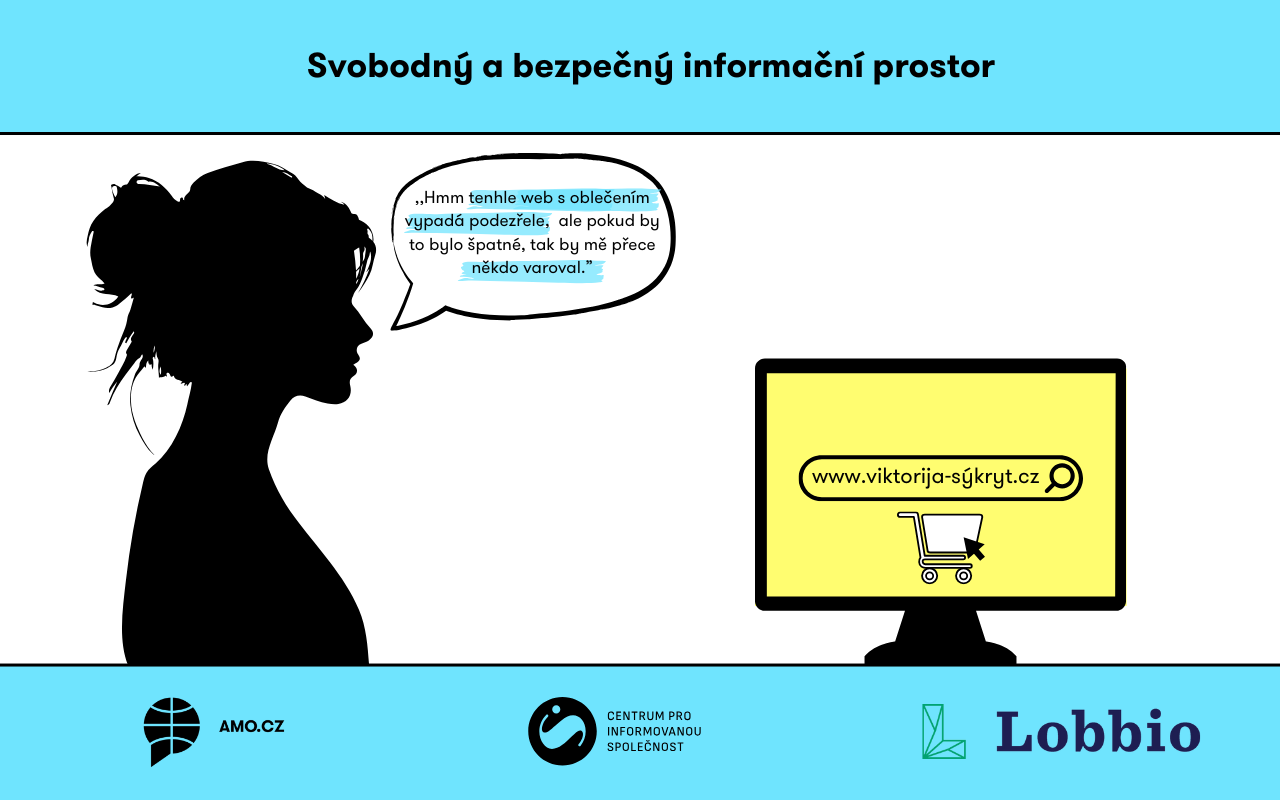The project "A Free and Secure Information Space" primarily aims to advocate for the adoption of the Digital Economy Act,which would formally empower the Czech Telecommunication Office (ČTÚ) to serve as the Digital Services Coordinator. Currently, this role has only been informally assigned by the government without official authorization. In addition, the consortium of AMO, Lobbio, and CIS seeks to better prepare the Czech state to implement and further develop EU digital legislation, adapting its institutions and approach to this agenda.
The goal of the project is to create a more open and inclusive information space for all viewpoints and political beliefs within the framework of Czech and European legislation. This space should no longer be overwhelmed by manipulative narratives or illegal content that threaten democratic discourse and national security.Furthermore, the project aims to improve the awareness of users and businesses, granting them more powers and competencies to influence their environment, while also benefiting non-profit organizations and researchers working with data.
The past period has shown that the Czech state remains woefully unprepared to adopt and effectively implement European digital legislation and related regulations. The situation has deteriorated to the point where Digital Services Regulation (DSA) the European Commission has initiated an infringement procedure against the Czech Republic procedure for infringement of European law (the so-called infringement procedure), due to the failure to adopt the Digital Economy Act and to formally empower the Digital Service Coordinator (DSC). As a result, the Czech Republic, along with several other EU member states, has become one of the so-called "black sheep" and an example of poor practices in this area.The European Commission continues to monitor this issue and takes steps against the Czech Republic, which the Czech government is addressing but at a very slow pace. Failure to meet these obligations risks undermining cooperation with other states and solidarity within the system. This could jeopardize the integrity of elections, the exchange of information with other countries, or researchers' and other stakeholders’ access to critical data..

